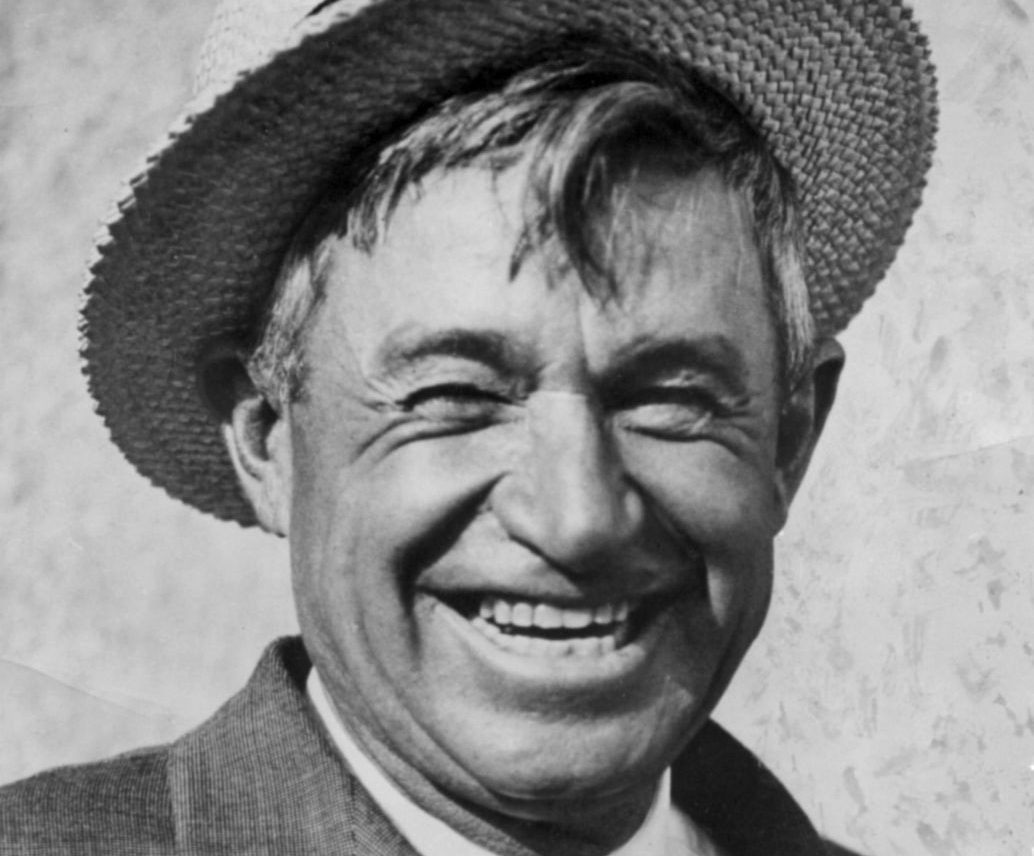
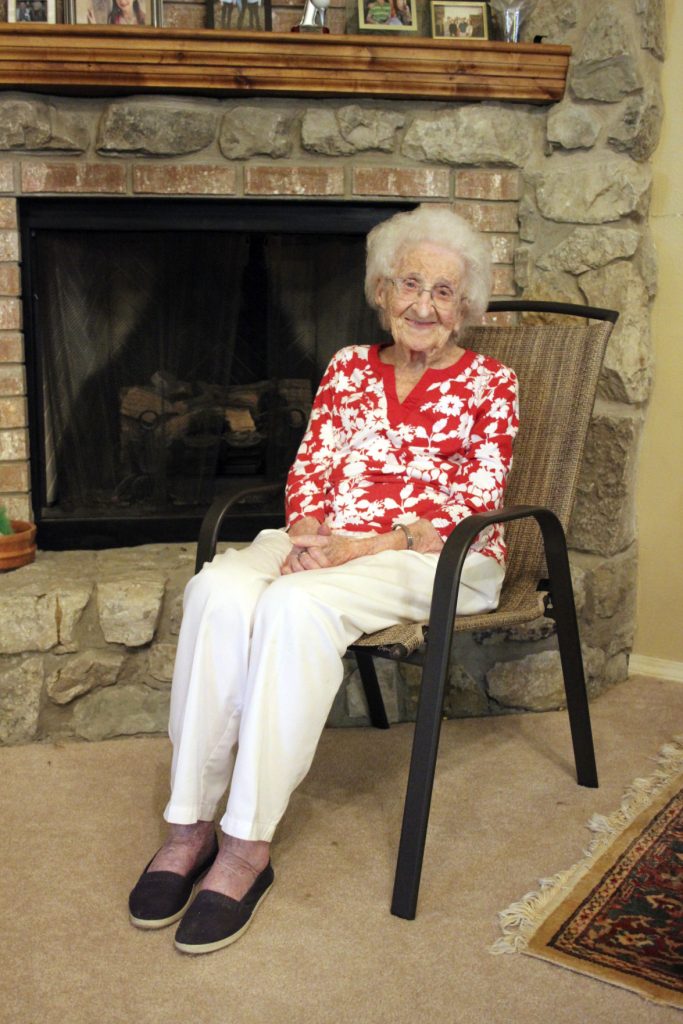
Doris “Coke” Meyer sits in her Bartlesville, Oklahoma, home thinking back on her life and of her favorite great uncle, Will Rogers. At 95, Meyer is the last known living relative who knew the Oklahoma cowboy, vaudevillian, actor and pivotal voice of the 1920s and 30s. Even in her mid-90s, Meyer is in good health, spunky and spry, but most crucially she remembers Will and the influence he had on her and the rest of the world just like it was yesterday.
Coke, as she is known because of her love for Coca-Cola, was 16 when her beloved great uncle passed away. Her father, Gunter Lane, was Will’s nephew and chauffeured Will around when he would come back to the Tulsa area to visit, which he did as often as he could.
“I got to travel with him when he came back to Oklahoma and really got to know him. He was so proud to be from Oklahoma,” she said.
Meyer wrote a book about her great uncle in 2012 entitled, “I Called Him Uncle Will.” She says she wrote the book for her family so they would have a record of their famous ancestor and his impact on the world. Aug. 15, 2015, marks the 80th anniversary of Will Rogers’ death. It is with gratitude and fondness rather than sorrow that Coke recounts the tremendous life of “Oklahoma’s Favorite Son” and an American icon.
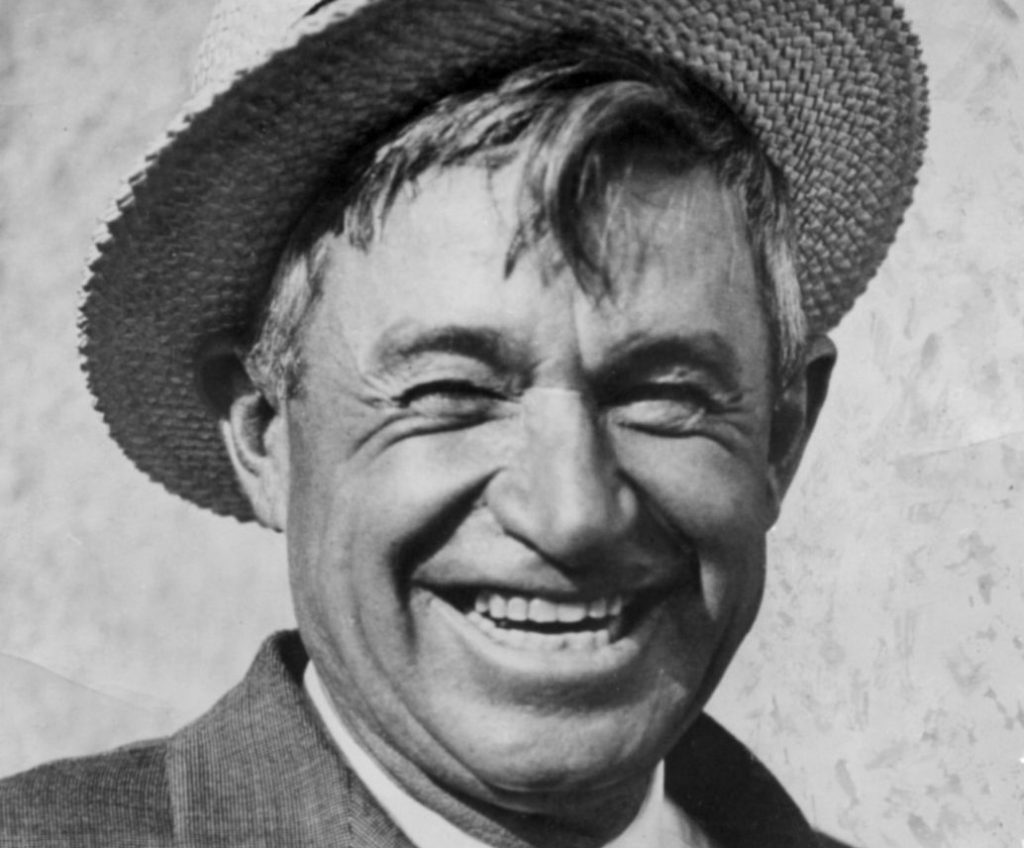

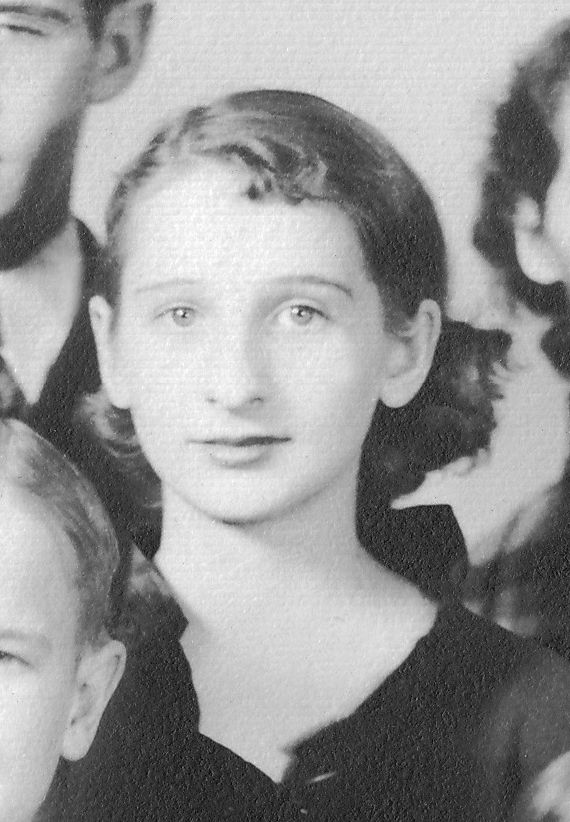
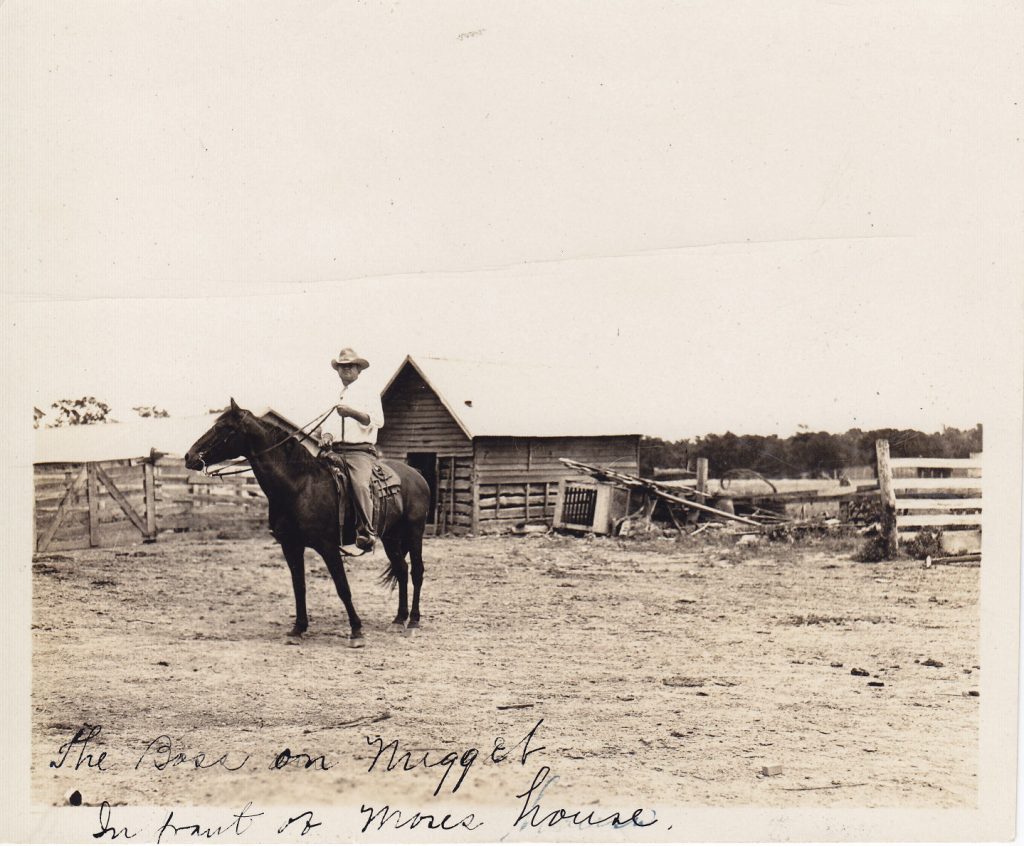
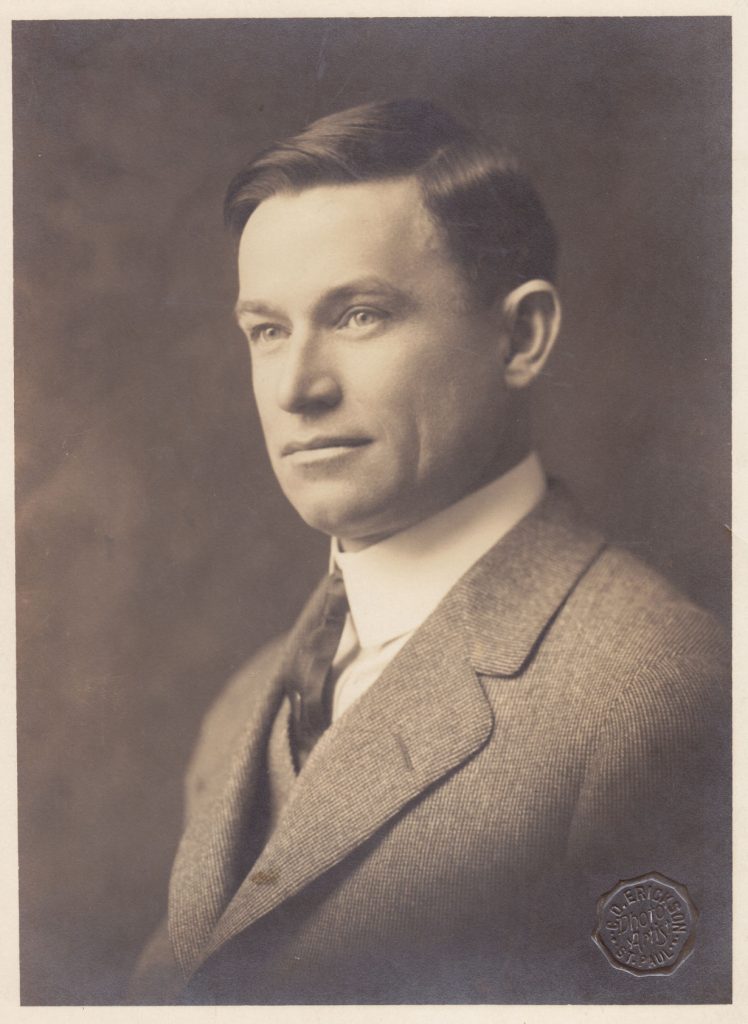
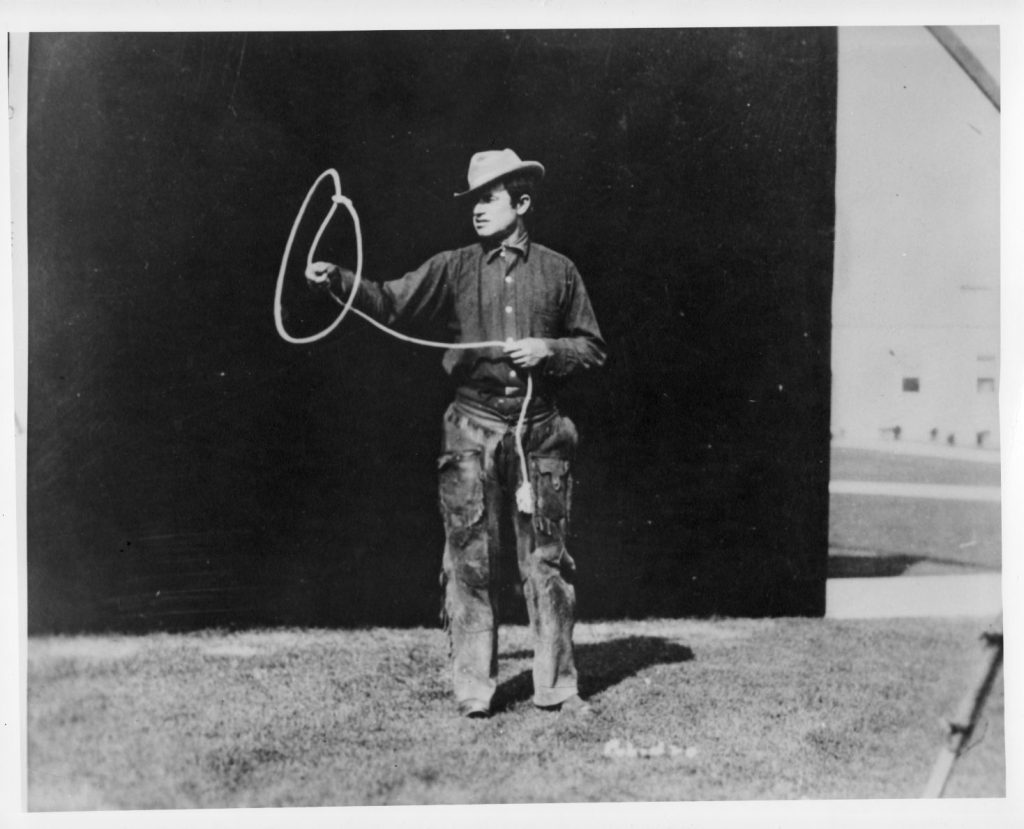
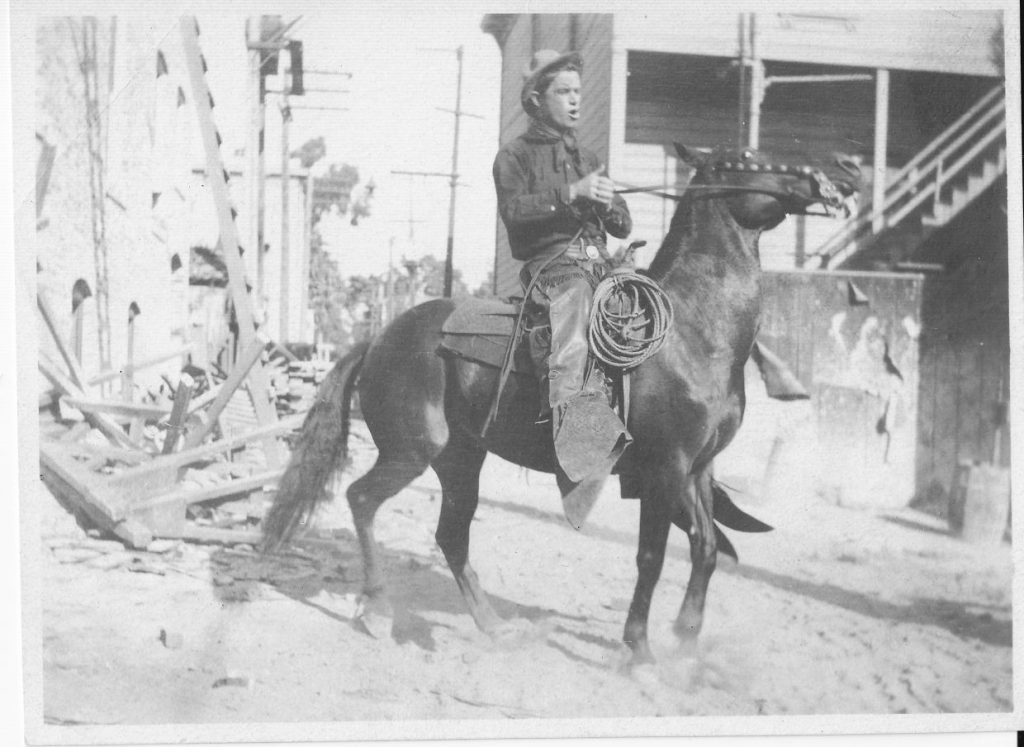
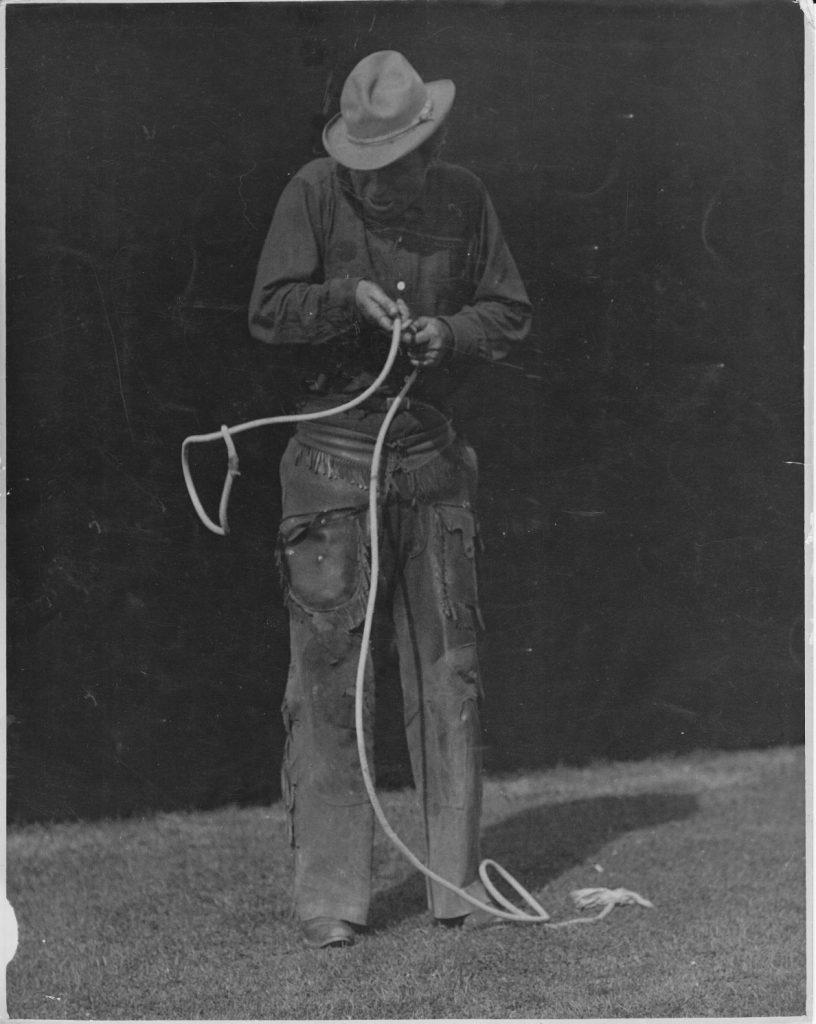
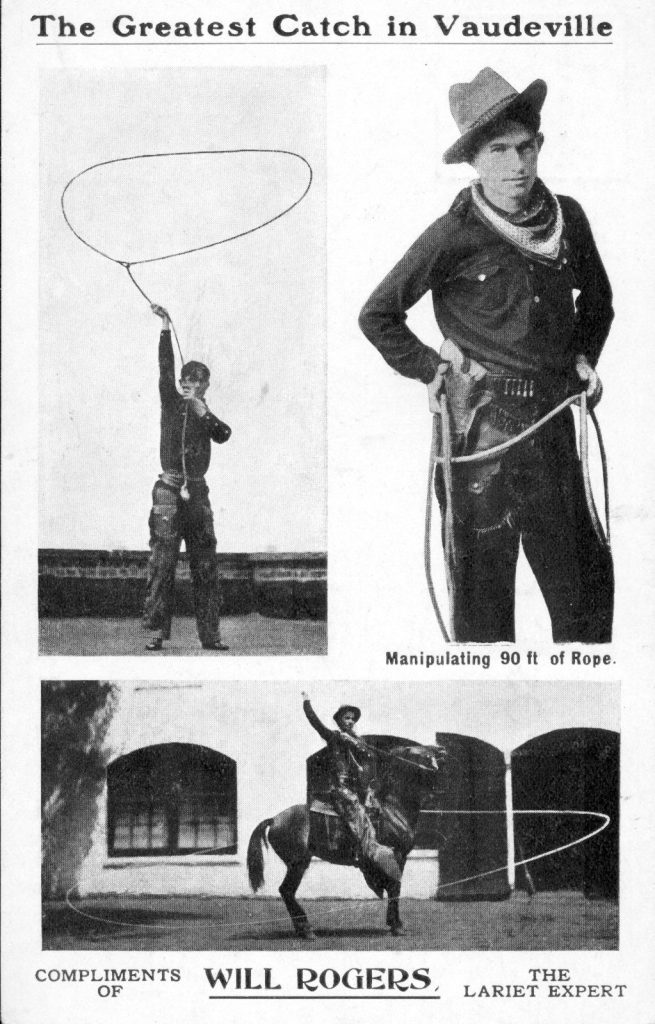
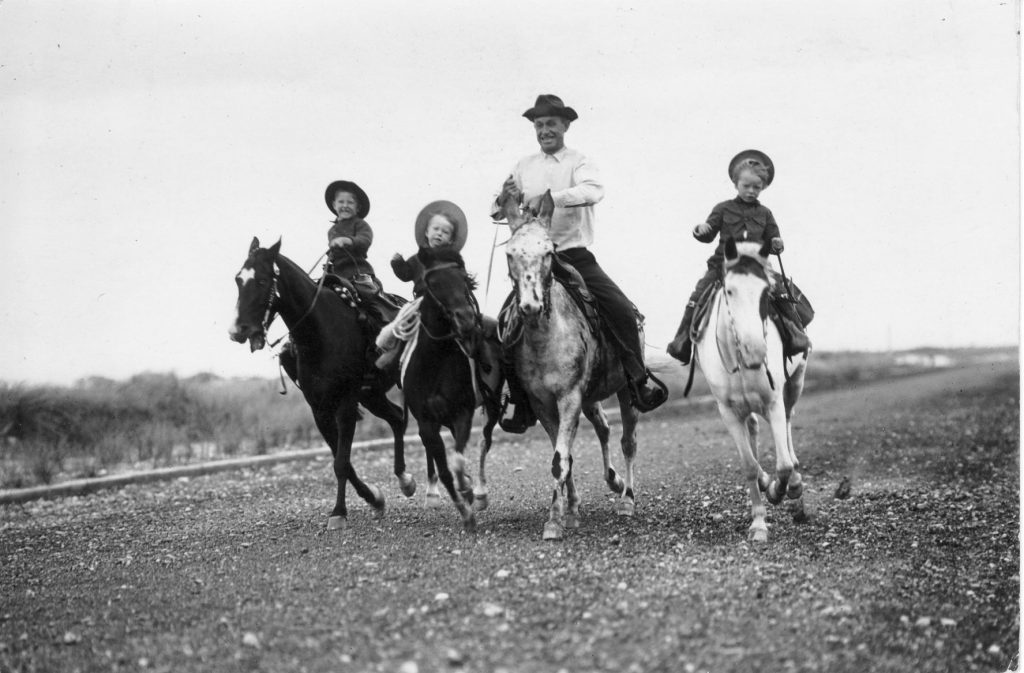
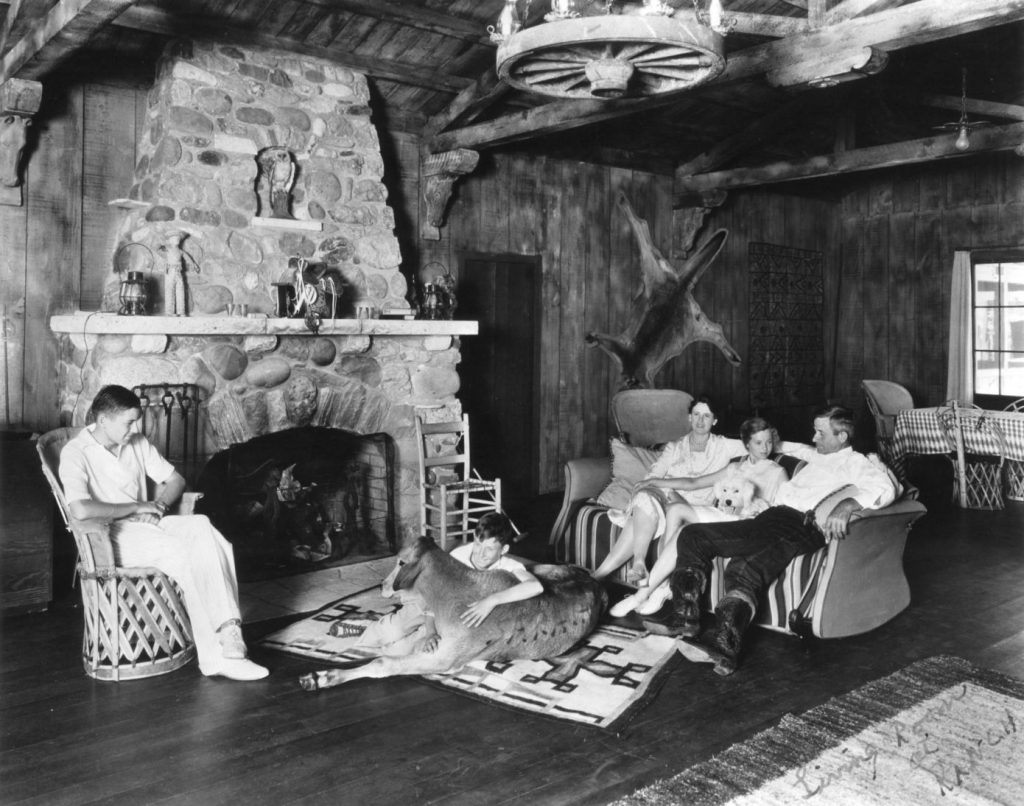
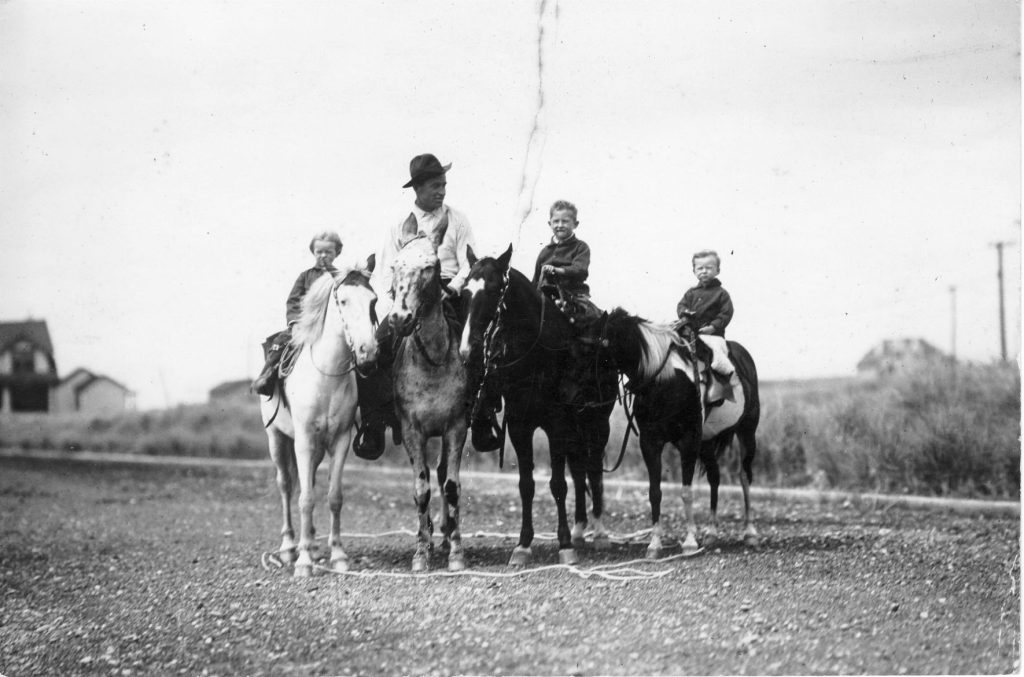
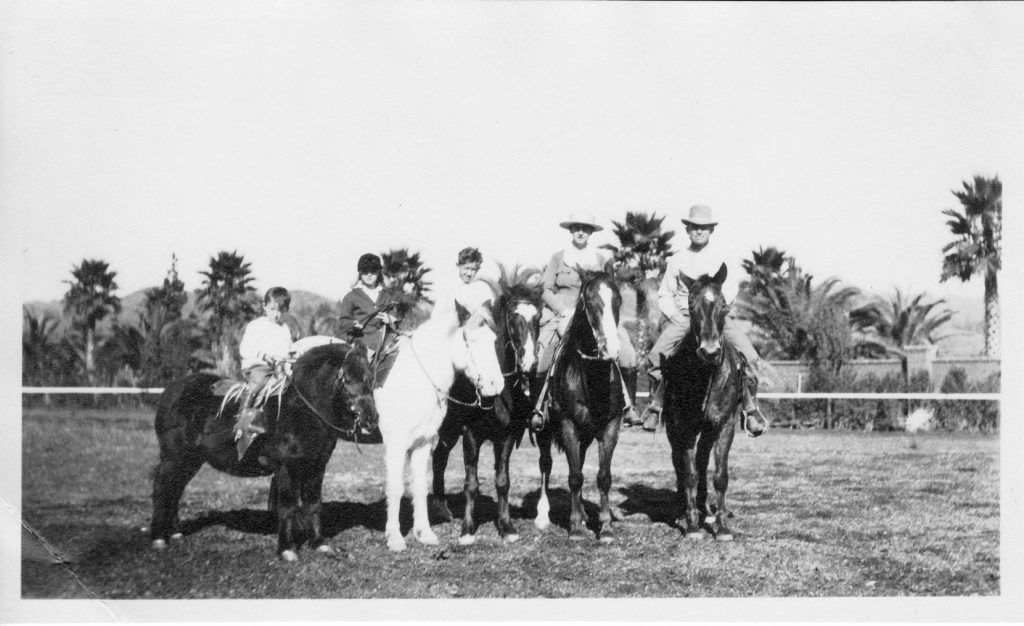
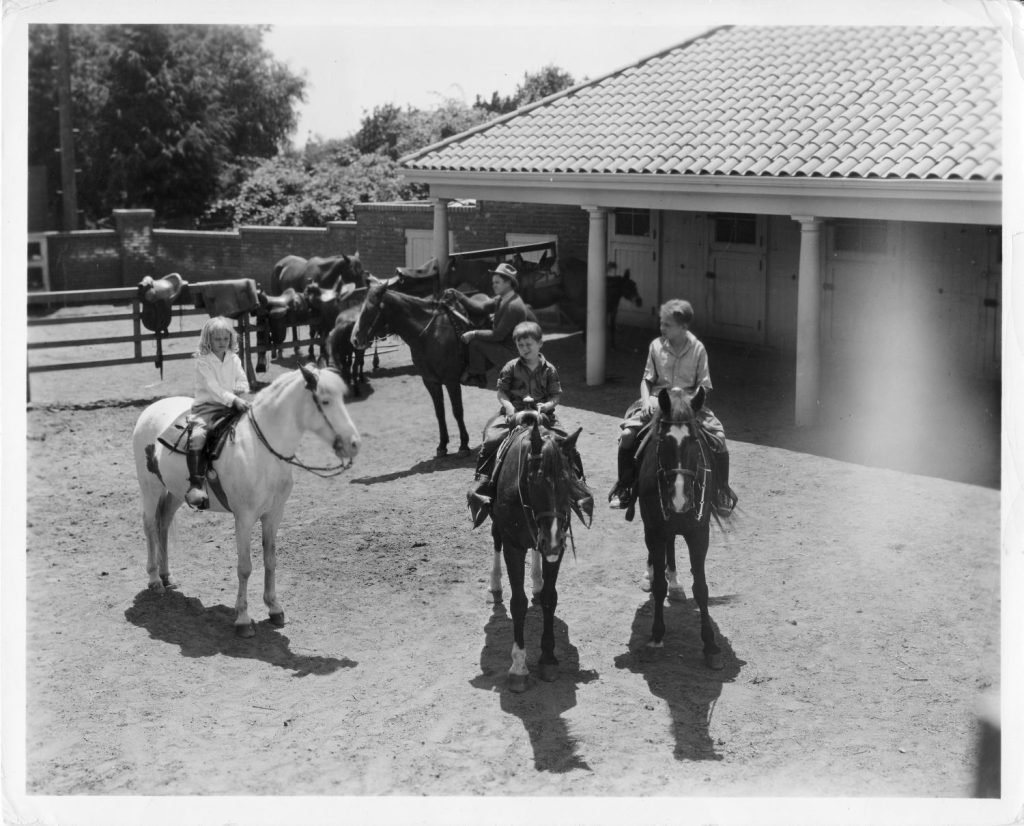
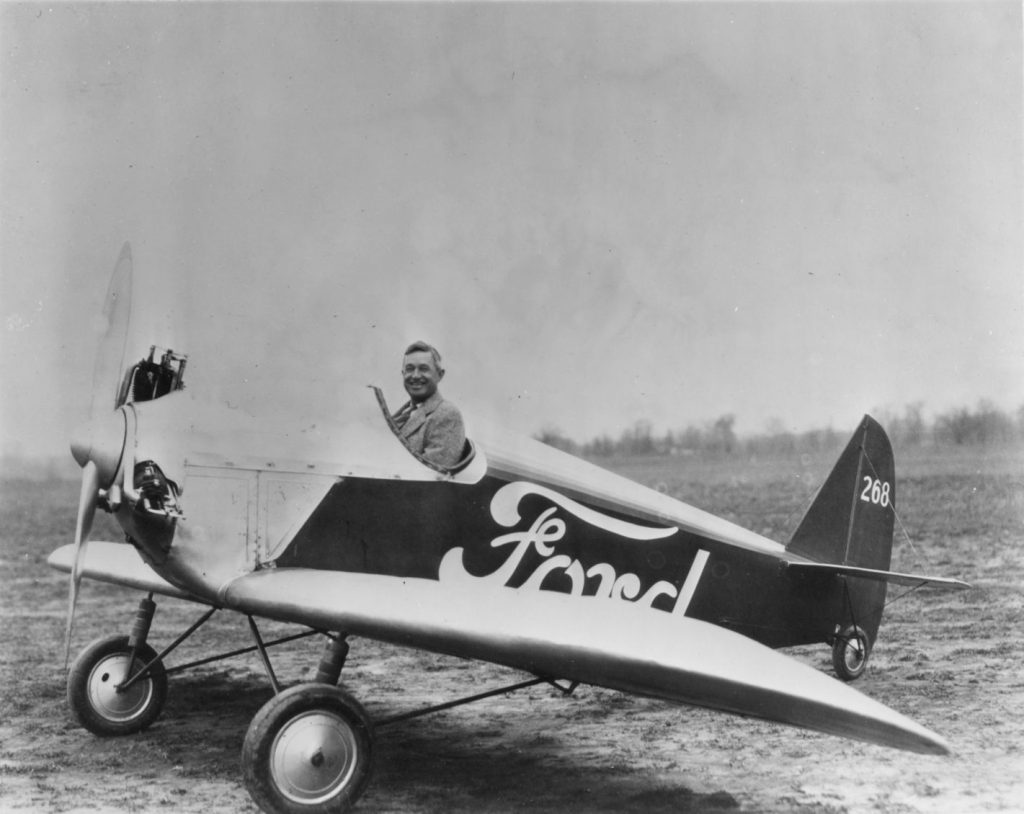
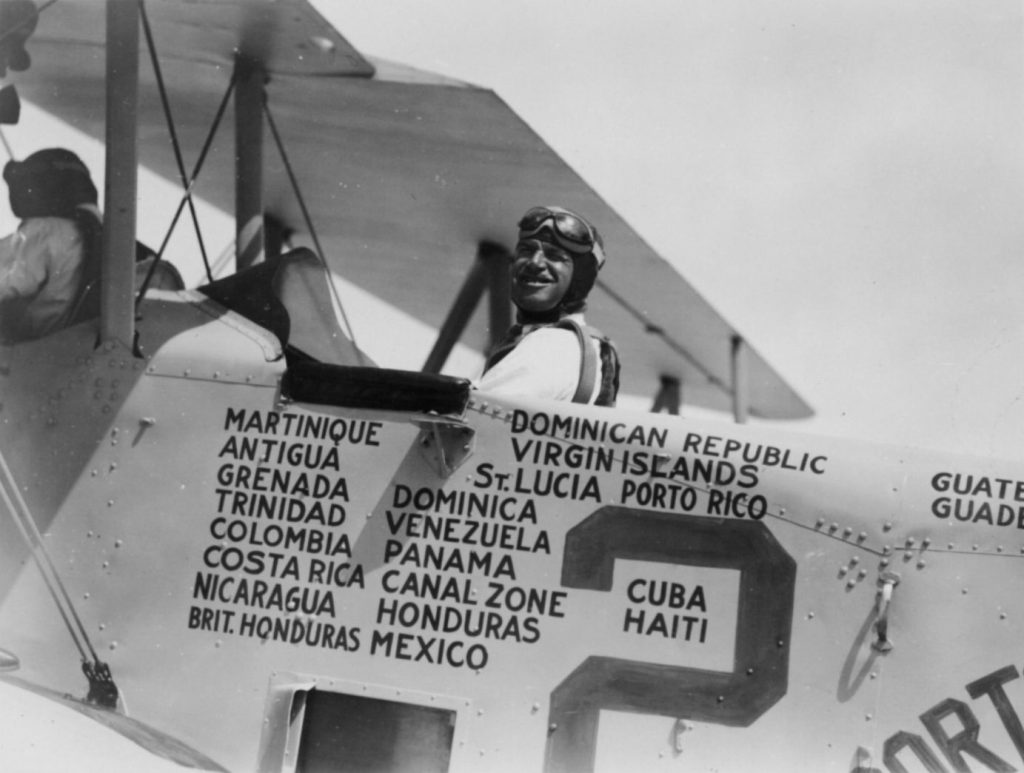
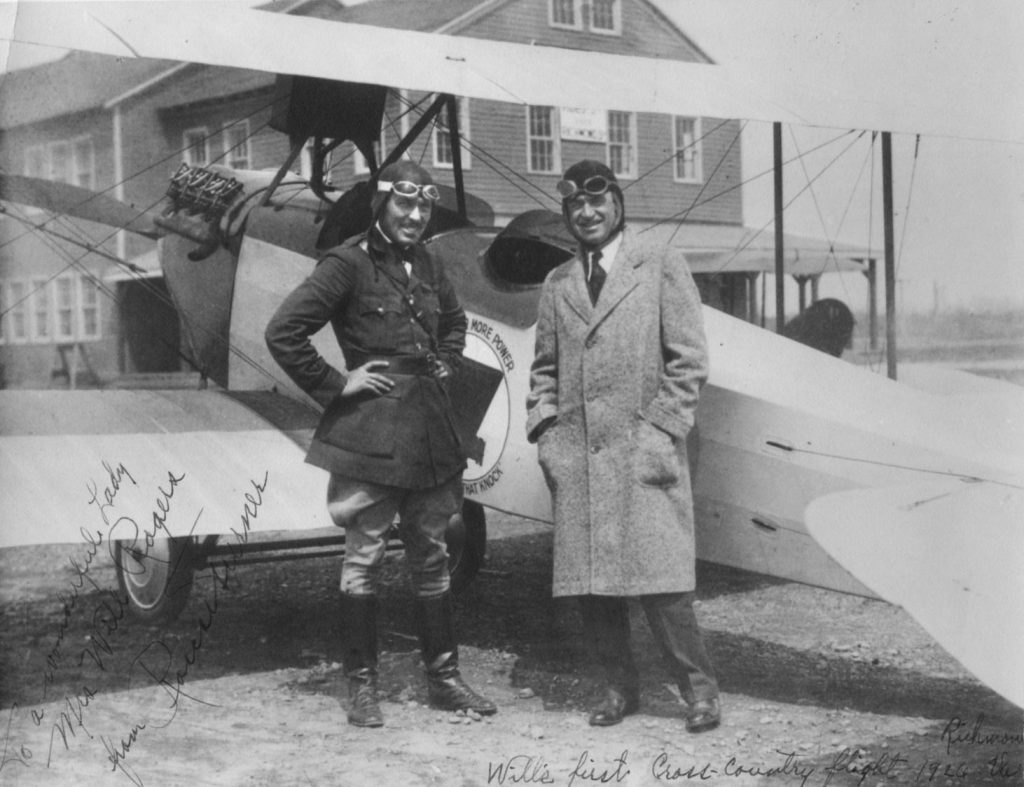
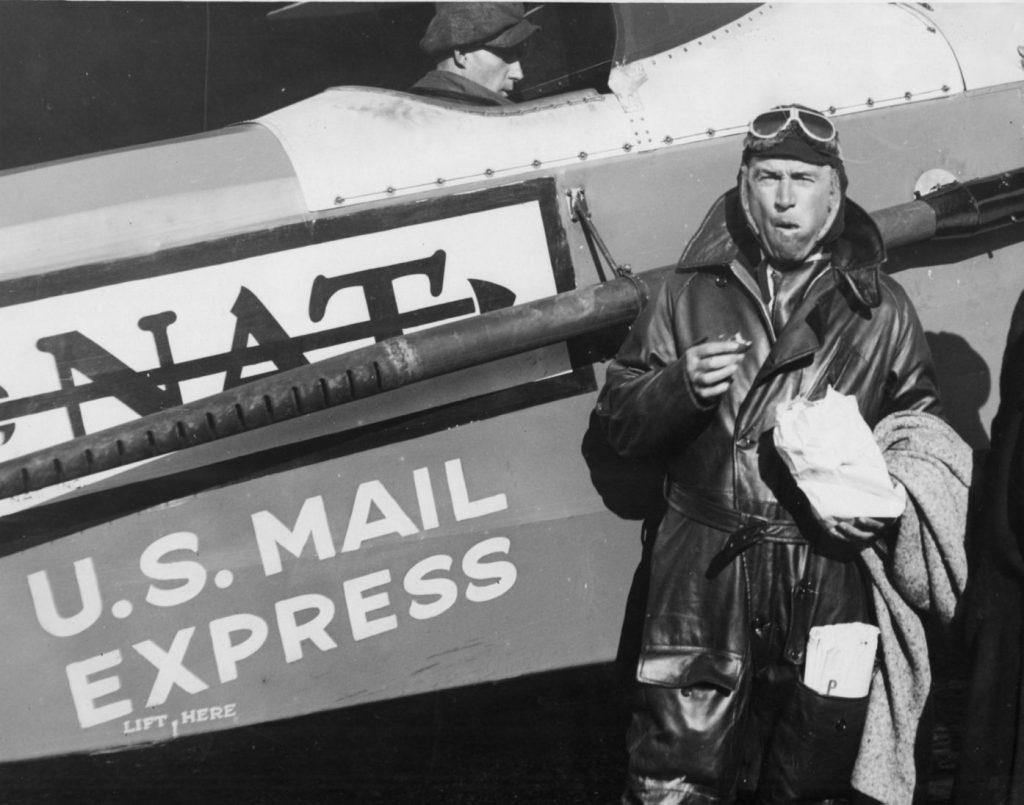
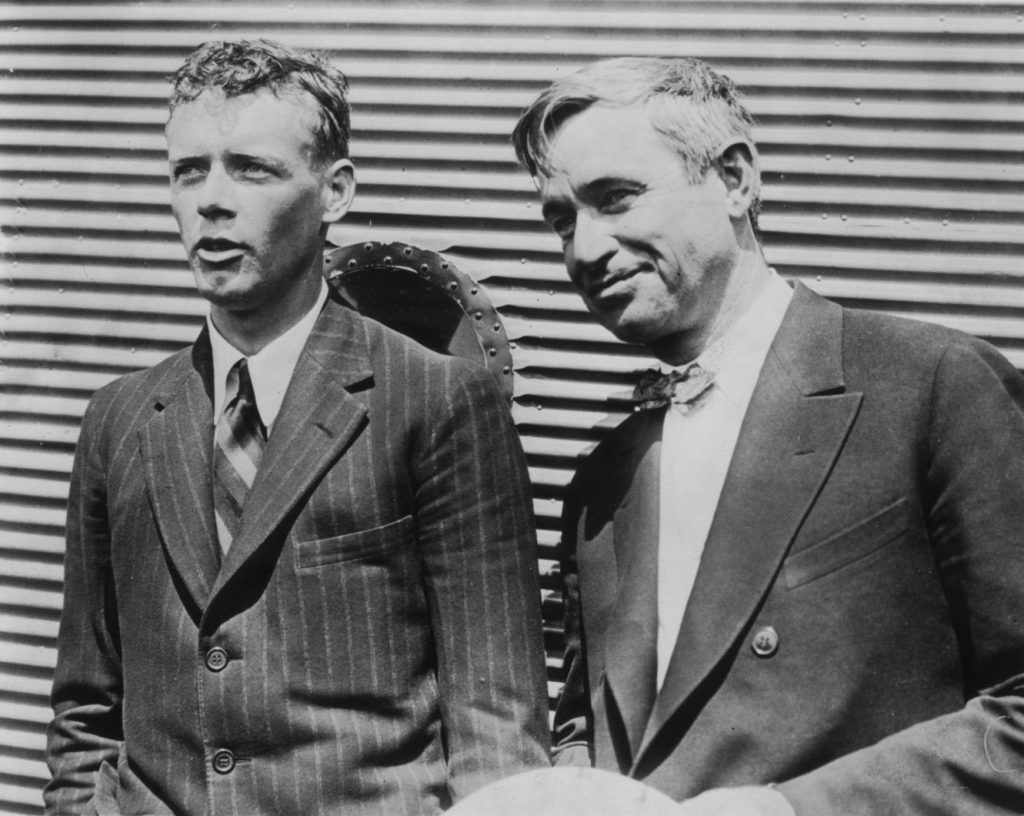
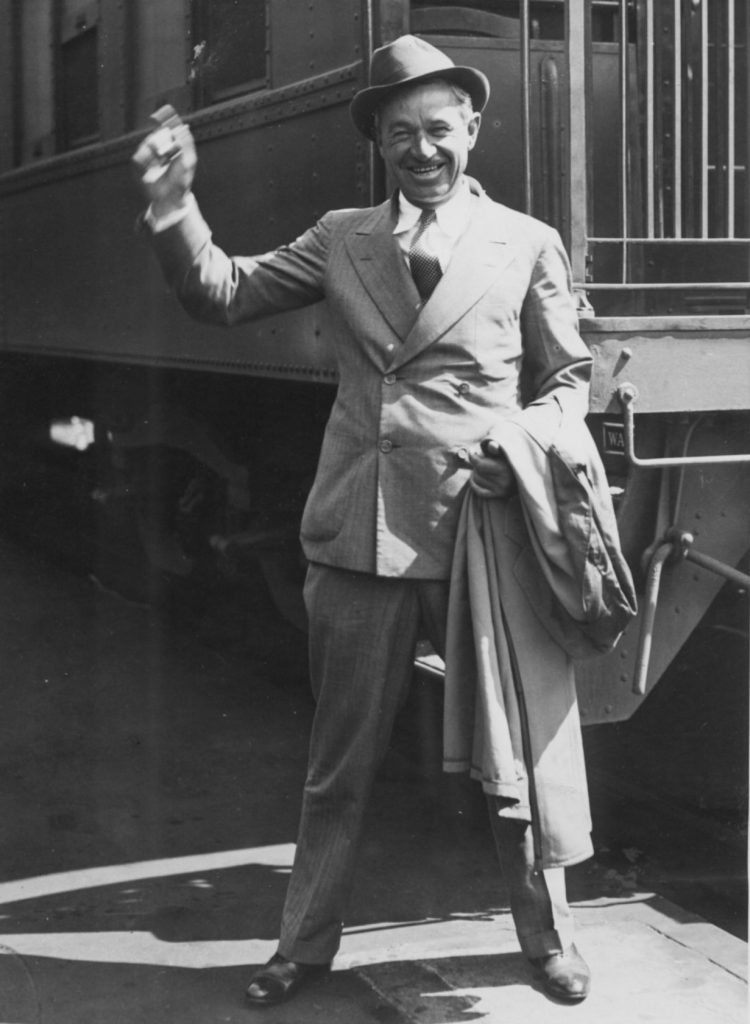
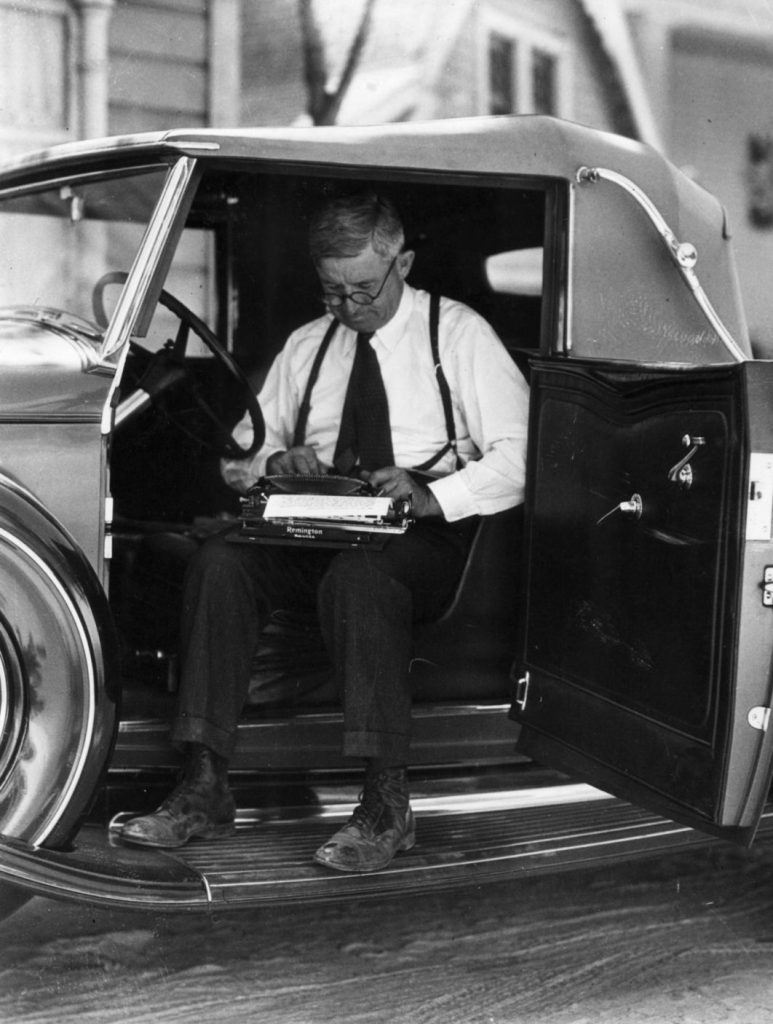
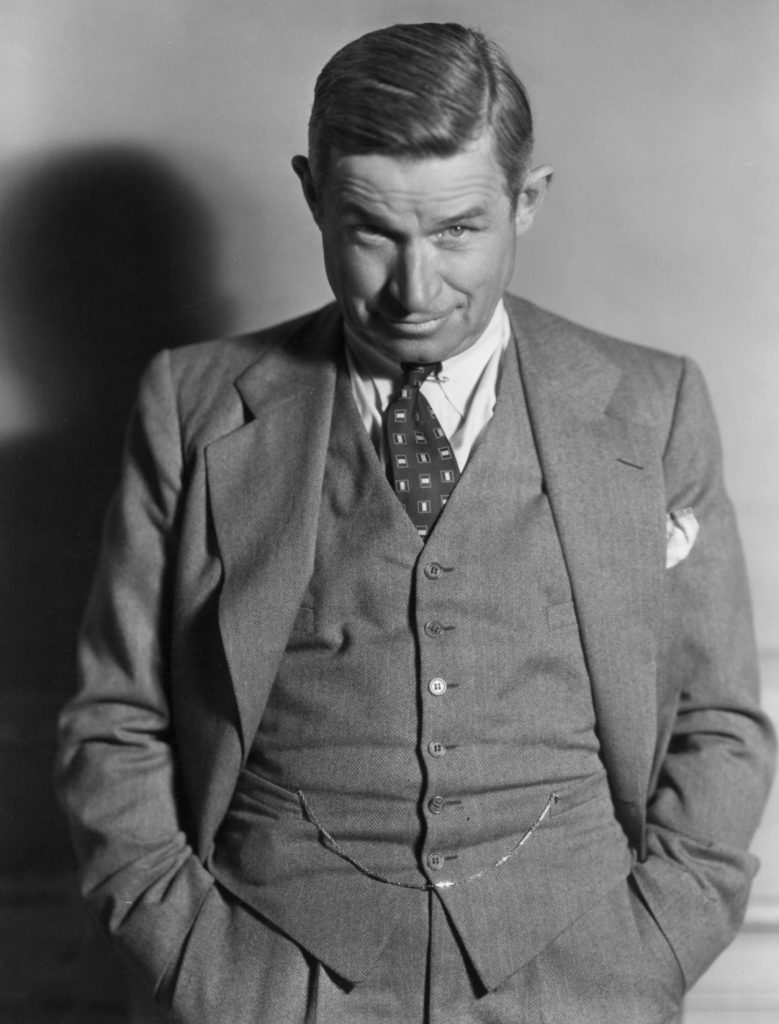
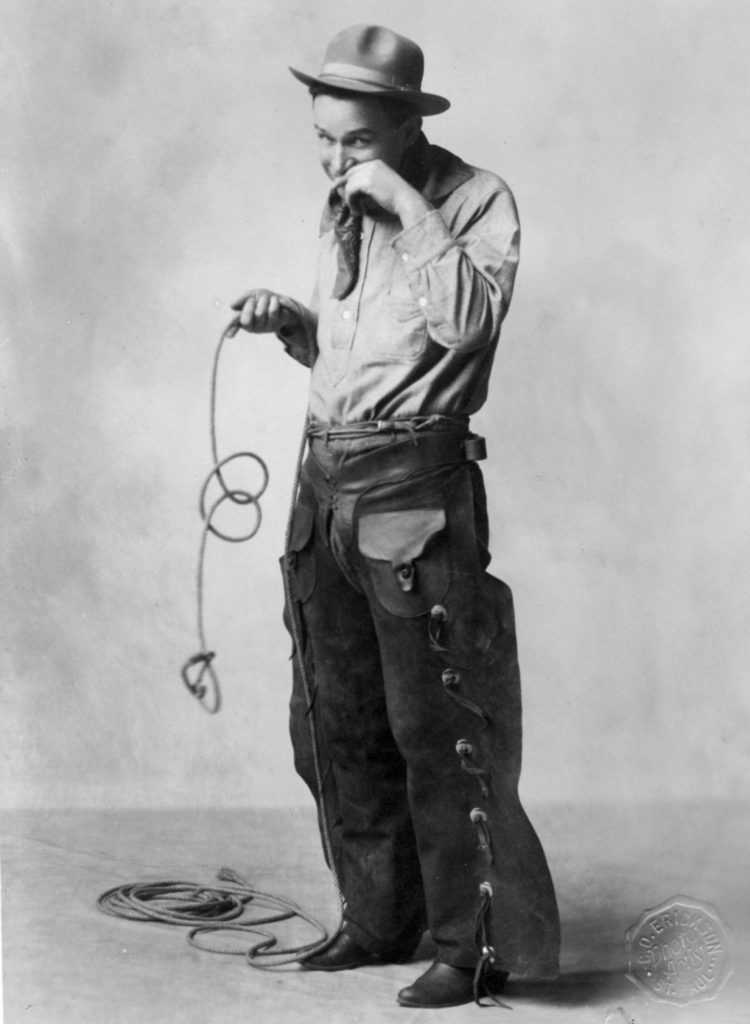
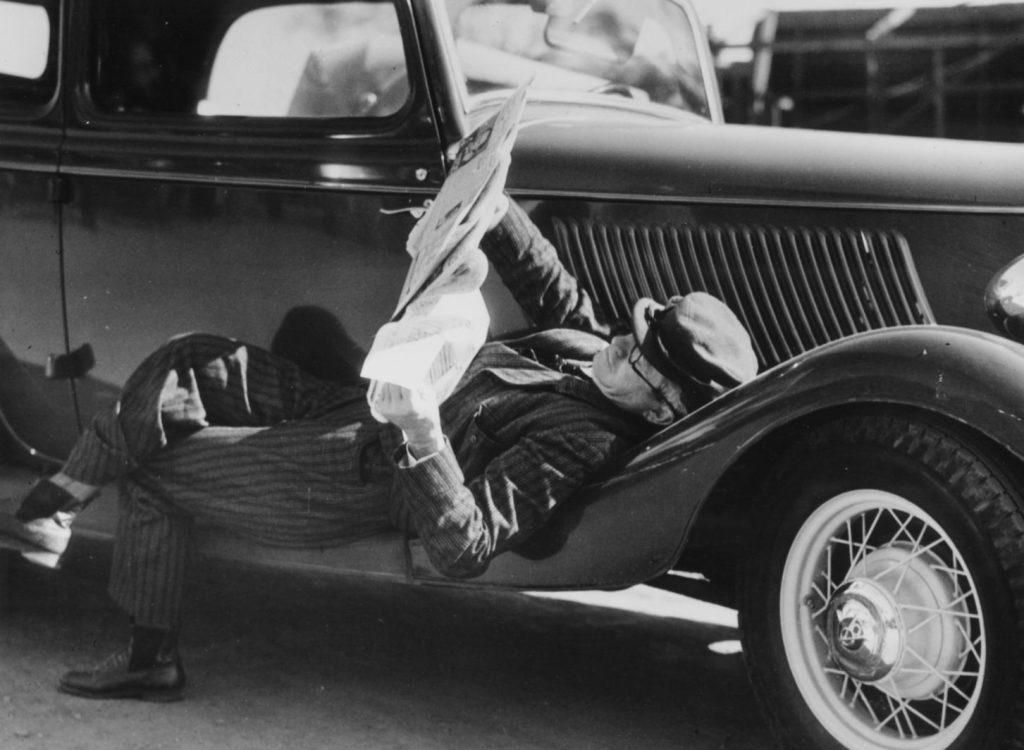
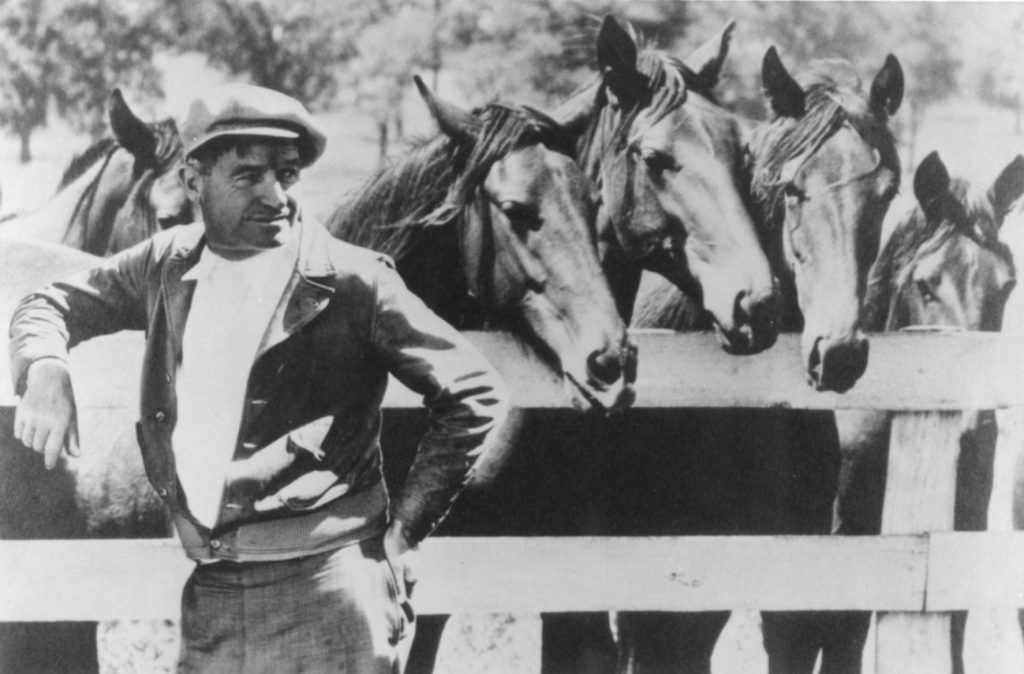
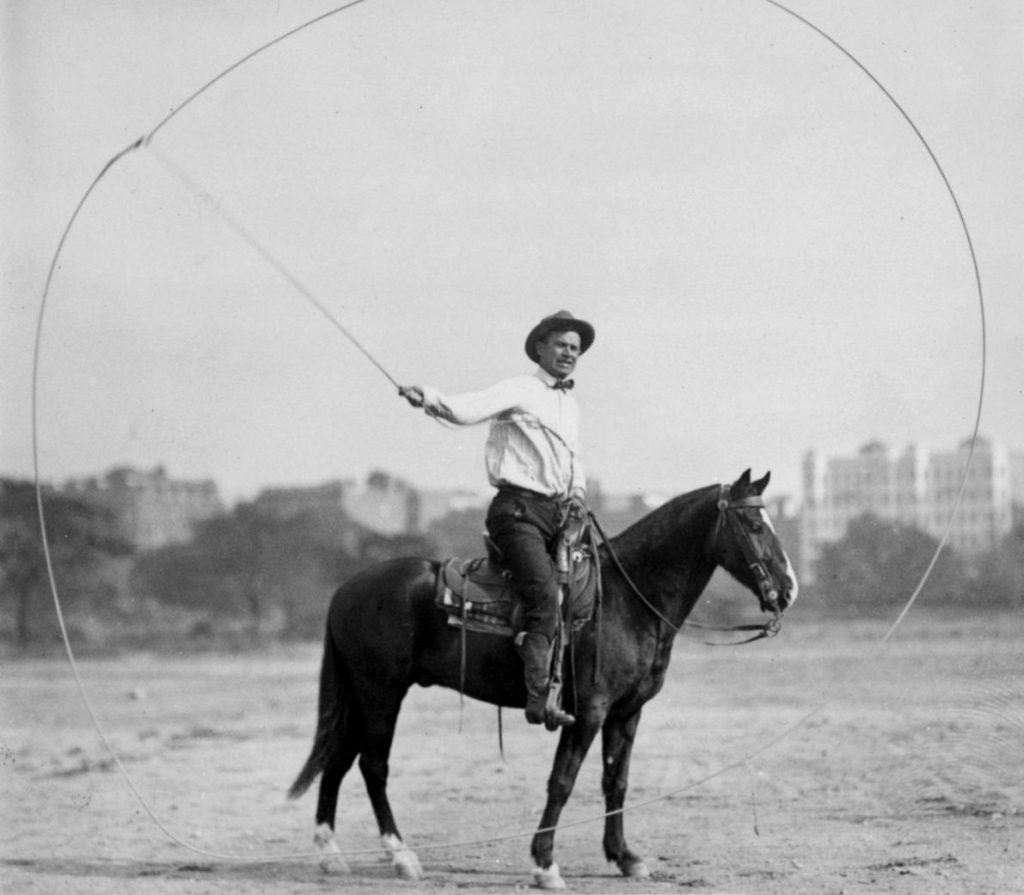
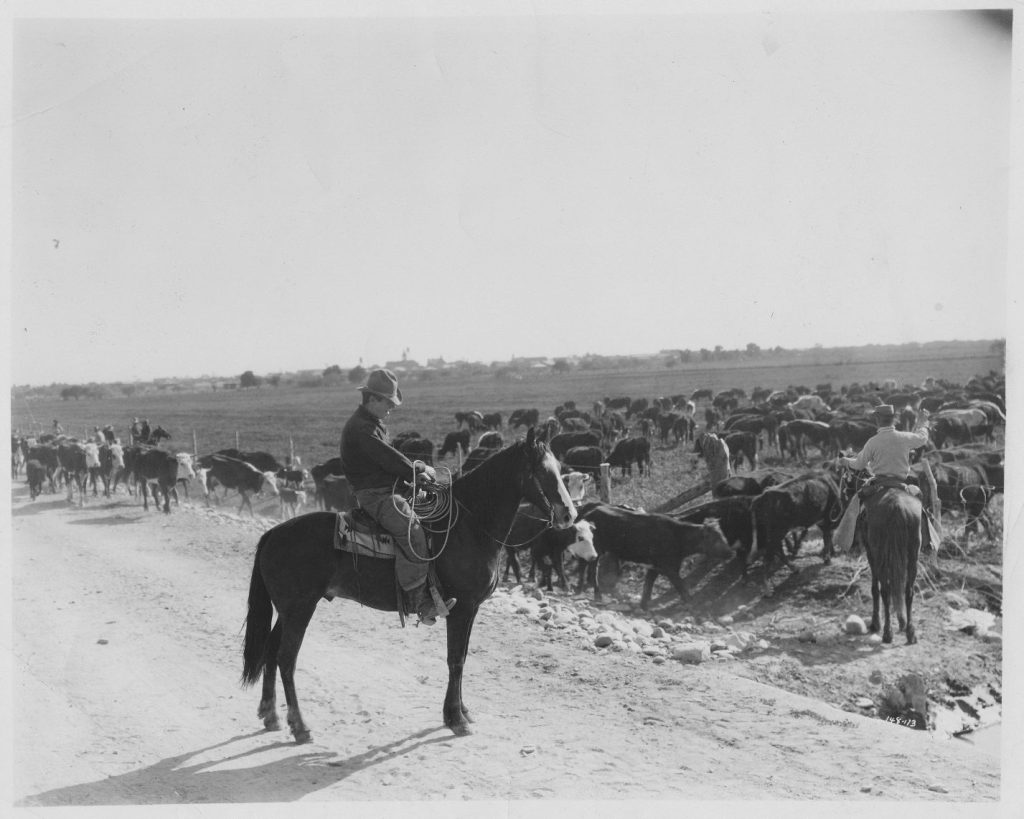
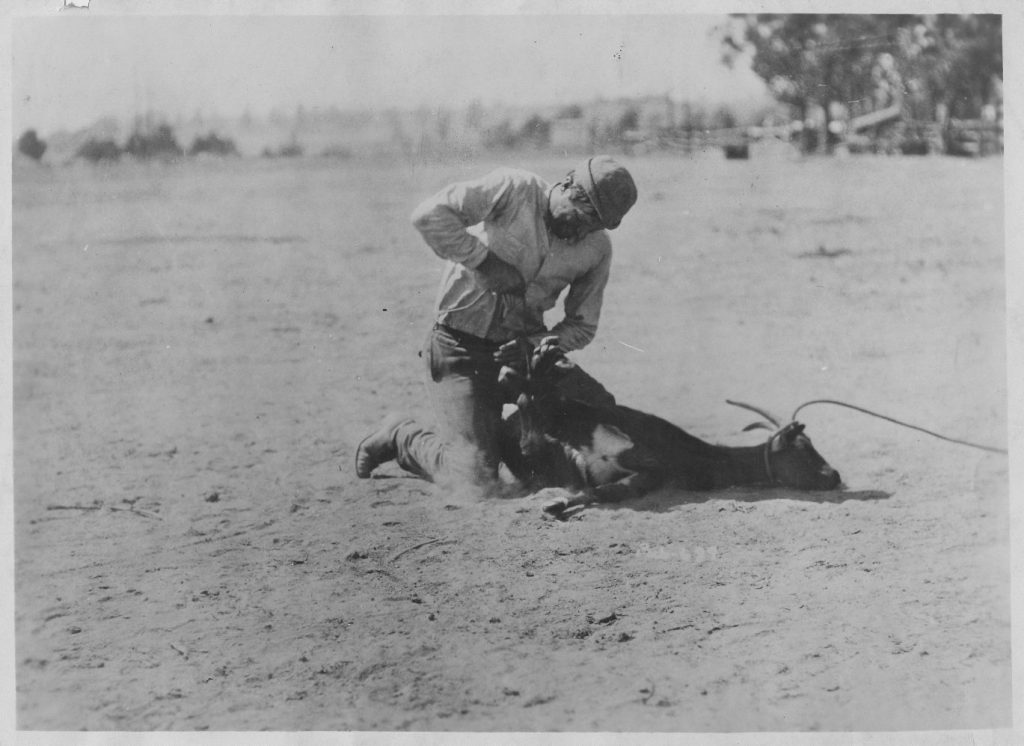
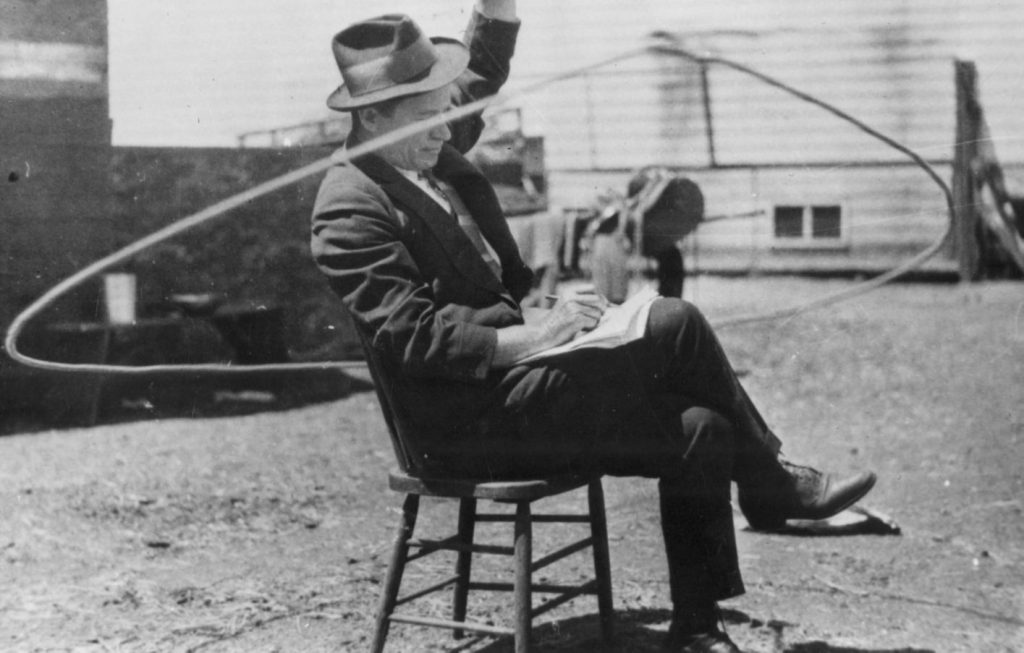
Indian-cowboy
It was Election Day in 1879 when Will Rogers was born into the recently opened Oklahoma Territory and what would become Oologah, Oklahoma. Parents Clement and Mary Rogers, both part Cherokee Indians, welcomed William Penn Adair Rogers as their last child. Will was the only boy to reach adulthood in the family, and after his mother passed away of typhoid fever when he was only 10 years old, his three older sisters, Maud, Sally and May, took over caring for him.
Will grew up on an expansive Longhorn cattle ranch. His father was a Cherokee senator and judge and was instrumental in developing Oklahoma’s constitution when it became a state in 1907. Because of his father’s successful ranching operation and business dealings, the family was well established and served as an anchor for the community.
A freed slave known as Uncle Dan, who worked on the ranch, taught Will to rope. Riding his horse Comanche, Will learned a vast variety of roping skills. Will would later be listed in the Guinness Book of World Records for throwing three lassos at once. Even though he was more interested in roping and riding the range, because of his family’s prominence he attended Kemper Military Institute in Boonville, Missouri, for a year before secretly quitting school in the late 1890s. Longing for a lasso and a cow pony, the teenager turned up in the Texas Panhandle, finding work as a cowhand on a ranch.
“He always wanted to be a cowboy and work on the ranch. Then the railroad came through and they put up barbed-wire fences all around and he didn’t like that at all because it took away his freedom of riding the range without anything in his way,” Coke explained.
In 1898, at his father’s request, Will reluctantly returned to Oolagah to run the Dog Iron Ranch. Itching for travel and culture, Will left the ranch once again in 1901 and set out for adventure. He made it to Argentina and worked as a cowboy before finding work as a member of Texas Jack’s Wild West Circus performing rope tricks in South Africa. Swinging his lasso, he garnered attention from crowds as the “Cherokee Kid.” He returned to the U.S. in 1904 and performed in the World’s Fairs in St. Louis and New York City.
Around this time Will had been courting Betty Blake, whom he had met in Oolagah, for several years by correspondence. They married in 1908 and had three children who grew to adults, Will Jr., Mary and Jim. Sadly their youngest son Fred died of diphtheria at the age of 2.
“Uncle Will was the gentlest person and he loved his family. He was so good with kids,” Coke added.
The family moved to New York City as Will’s career in entertainment prospered, and he got his big break when he was hired to star in the Ziegfeld Follies Broadway show in 1916. As he performed impressive rope trick for the spectators, he began to work his folksy humor into the act. The audience liked it so much he became more revered for his comments on current events and politics than his roping.
Will Rogers’ Bacon, Beans and Limousines broadcast—President’s Organization on Unemployment Relief, 1931. To hear more broadcasts, download Will Rogers Memorial Museum’s Bacon, Beans and Limousines podcast episodes HERE.
Movie star
By 1918, Oklahoma had a movie star on its hands. In 1919, the Rogers family moved to California when Will began to star in films. He would be active until his death. He starred in over 70 movies from 1918 to 1935. As sound didn’t come to film until 1929, most of his early work is silent. Many of his films feature the rope tricks from his first vaudeville act. By 1934, he was Hollywood’s highest paid actor. According to Coke, Will’s weekly salary during the Great Depression was $13,000 with an additional $150,000 to $187,000 per film produced. He had many famous friends in Hollywood including: Charles Lindbergh, Amelia Earhart, Spencer Tracy, Walt Disney, Tom Mix, Florenz Ziegfeld, Howard Hughes and Calvin Coolidge.
Even with his wealth, Will never forgot where he came from or about the less fortunate. He gave away a large amount of his money to people down on their luck and to charity, especially children’s charities. Coke said Will had a special spot in his heart for children going through difficulties because losing his mother at a young age had been so hard for him.
“He just had a generous, sweet heart about him,” Coke remarked.
Although he had dropped out of school, he was an intellectual and a gifted writer. Will began writing his famous column “Will Rogers Remarks” in 1922. It would become syndicated and run in more than 500 newspapers across the nation. He wrote 4,000 columns in his life, read by an audience of 40 million people.
“Everyone loved him. He was just so down to earth and he was someone you felt like you really knew,” Coke said.
Some say he is still one of the most quoted individuals ever, partly because his words still apply today. The importance of Will’s words lies in the universal simplicity of his thoughts. Everyone who read his columns or listened to his radio broadcasts could understand what he was saying and could relate to him.
Coke said his writing often contained misspelled words and grammatical errors but he always insisted, “Just run ‘er the way she lands.” Along with his newspaper column he also wrote several books filled with “Rogerisms.” Radio became a key means of communication during this time as well. Will would be entertaining and enlightening the nation even before Franklin D. Roosevelt started his famous fireside chats.
Because of his universal homespun humor, Will became an institution for his lighthearted sayings and speeches. His jocular thoughts on the world were significant for Americans struggling through the Great Depression. Will did all he could to keep people from losing hope for the future.
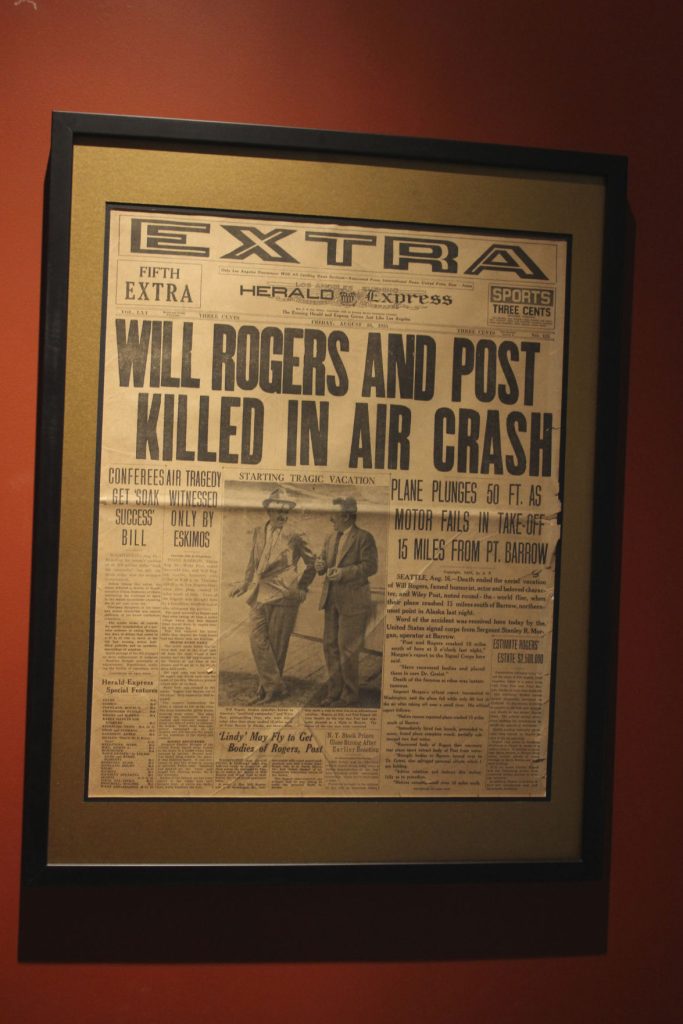
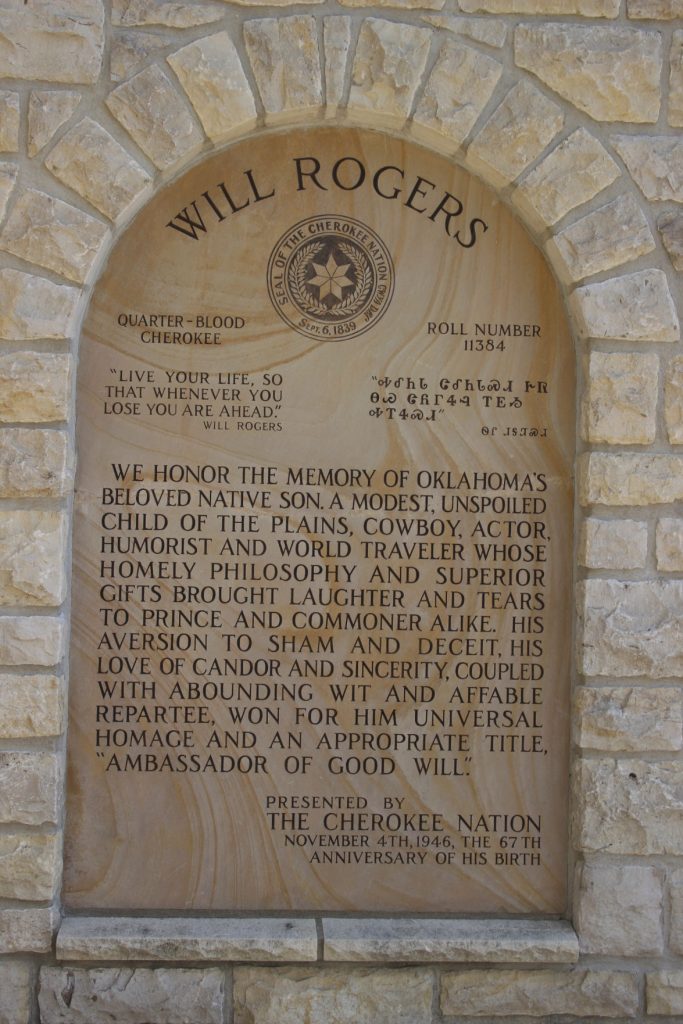
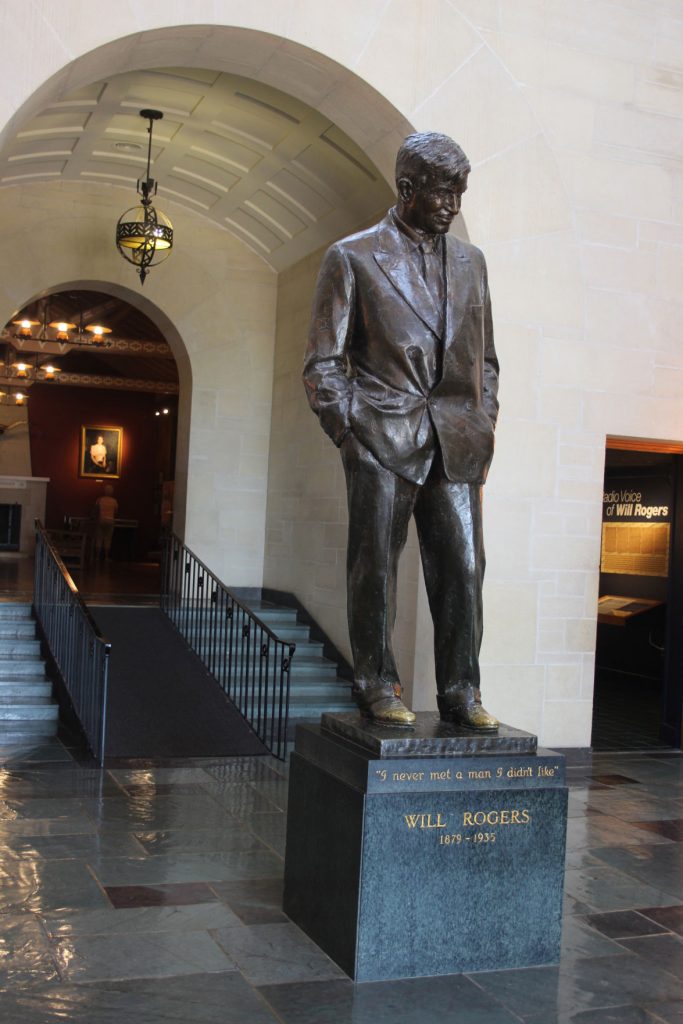
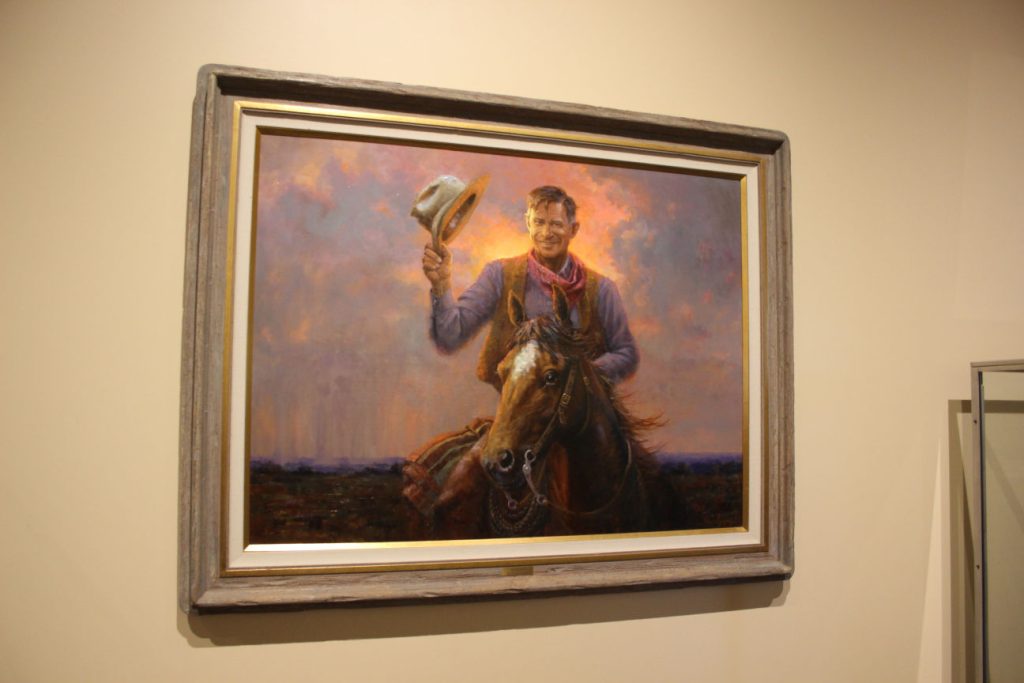
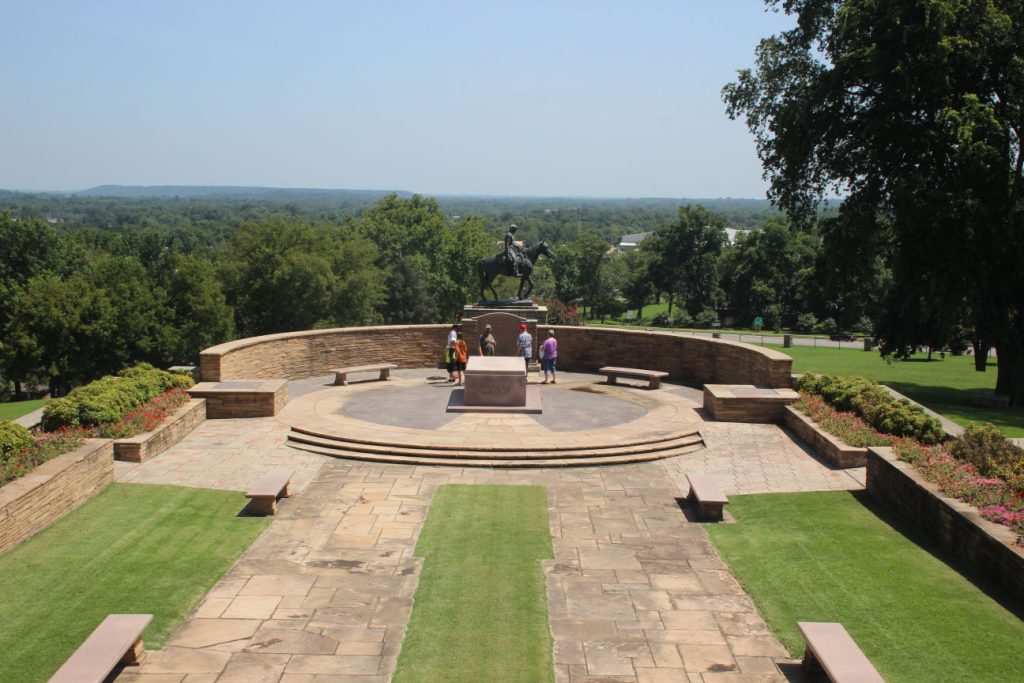
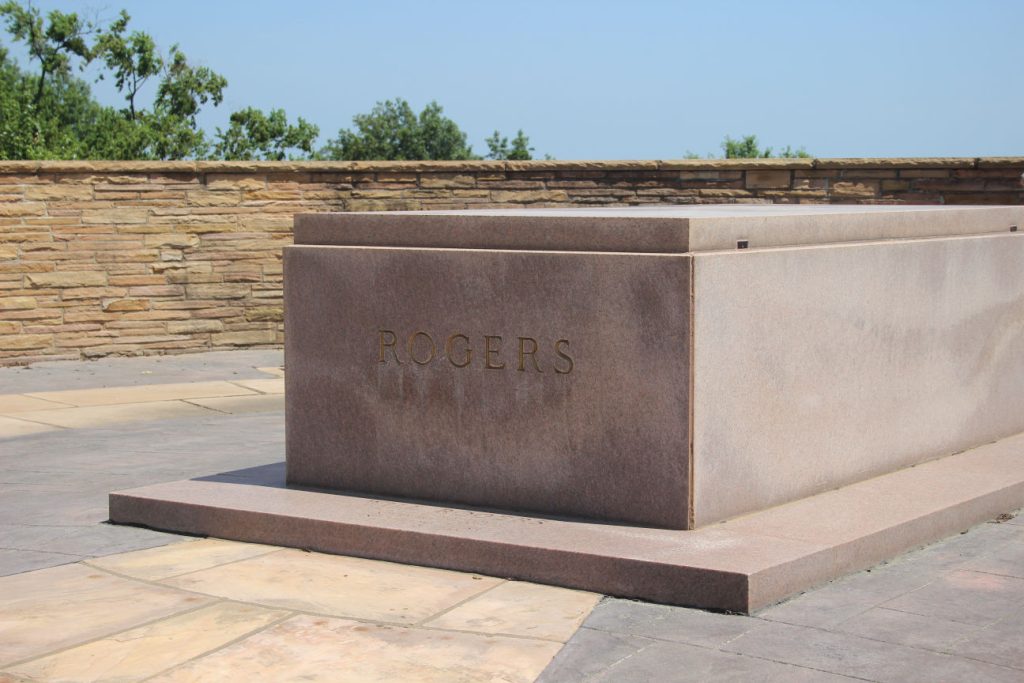
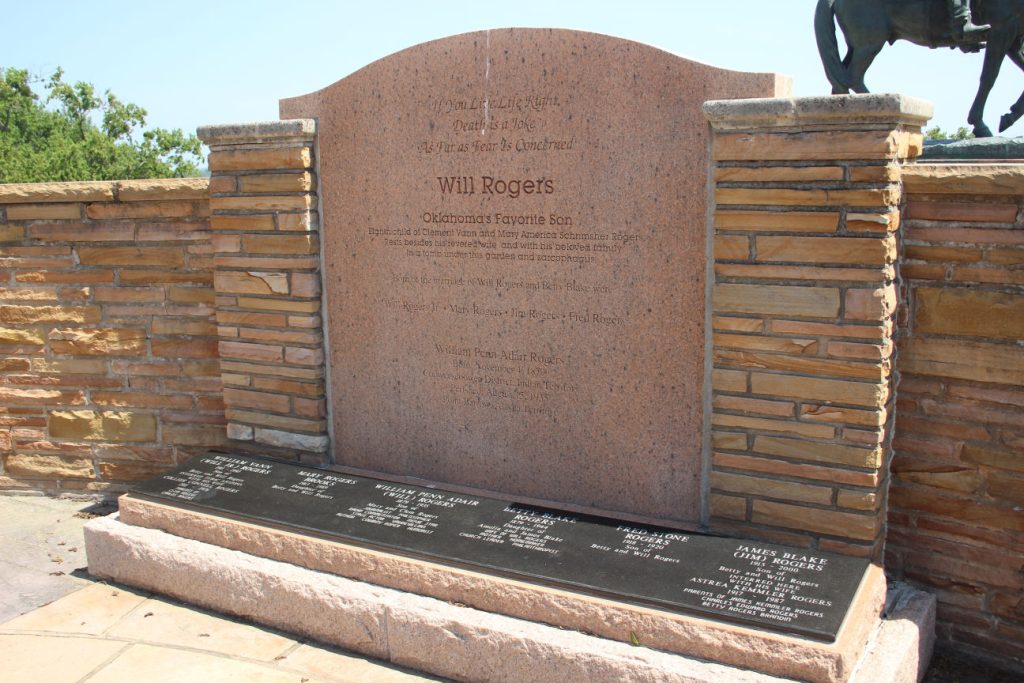
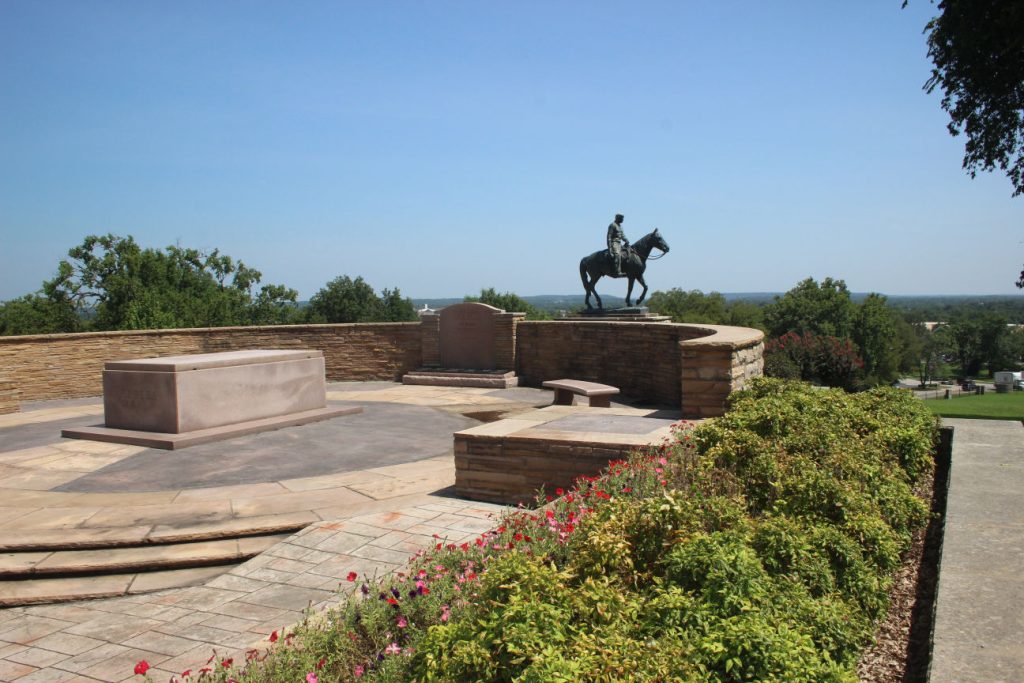
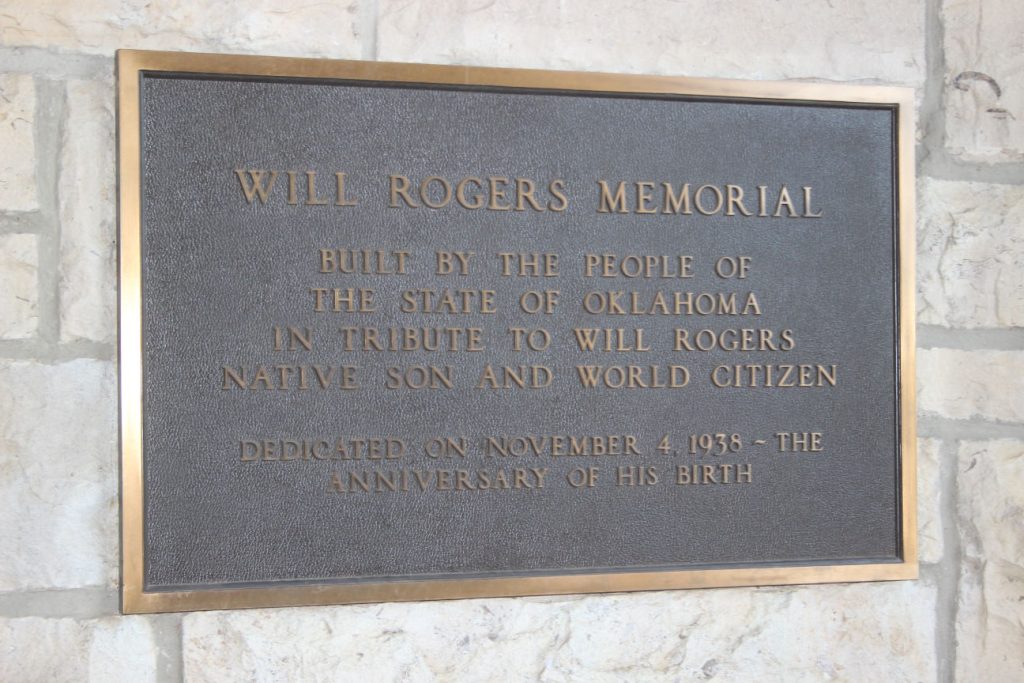
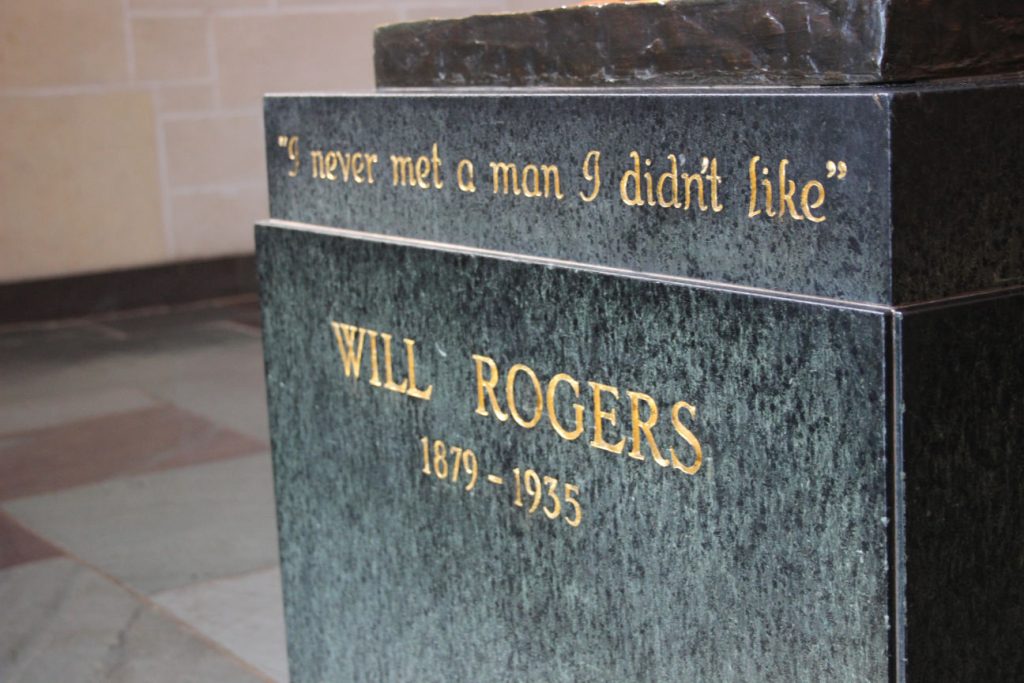
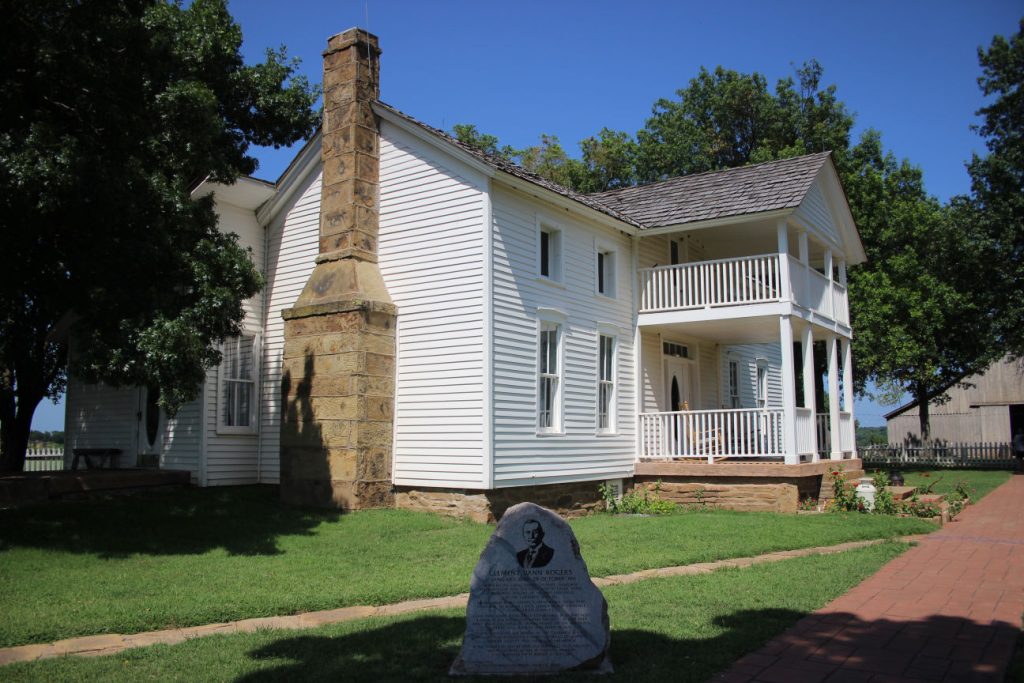
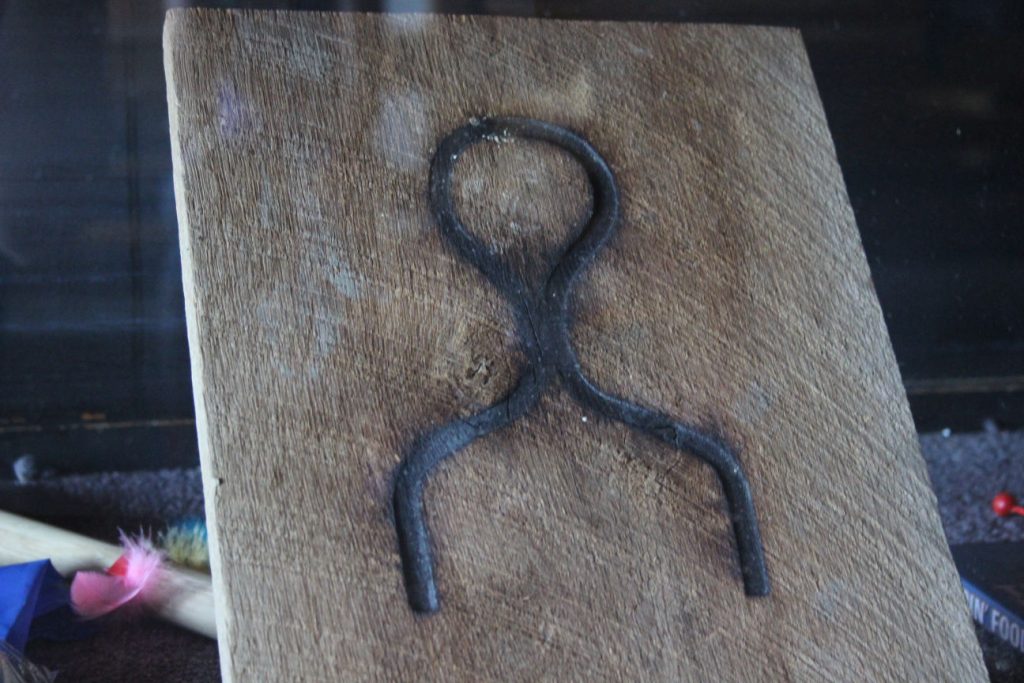
Flight to no return
Aviation had become an emerging means of transportation in the 1920s and 30s, and Will was a major supporter of flight. He traveled frequently for speaking engagements and political appearances. Although he never became a pilot, he rode in many planes and championed a strong Air Force.
It was on a flight tour of Alaska with famed pilot, Wiley Post, that Will would take off in a plane and never return. It is said his funeral in California saw the largest turnout since the death of Abraham Lincoln. Just like the great American president, just about every faction of America felt sorrow for Will’s passing. He had been a friend to anyone who would have him. During a span of immense despair and years fraught with anguish, Will had managed to crack a few jokes and provide a healing bandage of relief for a nation endeavoring to put itself back together again after the crash of its economy. They all wept for the loss of their cowboy philosopher whose sarcasm cloaked in country boy humor had been so celebrated.
“I think he had a really good connection to people and he also had a good understanding of human nature and humanity,” said Coke.
The connection he had is still evident today.
“I think it’s very important for his legacy to on and on, and we’re trying to do that,” Coke explained.
As for Coke, the last of a generation is not such a bad thing. She realizes how integral she is to the memory of Will Rogers. As his last direct lifeline to the present world, she keeps his legacy close to her heart.
Will said it best in one of his columns, “You must judge a man’s greatness by how much he will be missed.”
To learn more about Will Rogers, visit his burial site at the Will Rogers Memorial Museum in Claremore, Oklahoma; the Will Rogers Birthplace Dog Iron Ranch in Oolagah, Oklahoma; or the Will Rogers Ranch in Pacific Palisades, California.
Lacey Vilhauer can be reached at 620-227-1858 or [email protected].
Will Rogers’ best quotes
- Ten men in the country could buy the world and ten million can’t buy enough to eat.
- We will never have true civilization until we have learned to recognize the rights of others.
- This would be a great time in the world for some man to come along that knew something.
- My ancestors didn’t come over on the Mayflower, but they met the boat.
- A man that don’t love a horse, there is something the matter with him.
- No man is great if he thinks he is.
- Remember, write to your Congressman. Even if he can’t read, write to him.
- I joked about every prominent man of my time, but I never met a man I didn’t like.
- Why don’t they pass a Constitutional Amendment prohibiting anybody from learning anything? If it works as good as Prohibition did, in five years we will have the smartest people on earth.
- What constitutes a life well spent, anyway? Love and admiration from your fellow men is all that any one can ask.
- I am just an old country boy in a big town trying to get along. I have been eating pretty regular and the reason I have been is because I have stayed an old country boy.
- It takes nerve to be a Democrat, but it takes money to be a Republican.
- When newspapers knock a man a lot, there is sure to be a lot of good in him.
- I have not aligned myself with any party. Sitting tight waiting for an attractive offer.
- The Republicans mopped up, the Democrats gummed up, and I will now try and sum up. Things are terribly dull now. We won’t have any more serious comedy until Congress meets.
- Ohio claims they are due a president as they haven’t had one since Taft. Look at the United States, they have not had one since Lincoln.
- You could keep politics clean if you could figure out some way so your government never hired anyone.
- George Washington was a politician and a gentleman. That’s a rare combination.
- Farmers are learning the relief they get from the sky beats what they get from Washington.
- I love animals and I love politicians. I like to watch both of ’em play either back home in their native state or after they have been captured and sent to a zoo or to Washington.
- I love a dog, he does nothing for political reasons.
- There is one rule that works in every calamity. Be it pestilence, war or famine, the rich get richer and poor get poorer. The poor even help arrange it.
- One thing about farmers’ relief: It can’t last long, for the farmers ain’t got much more to be relieved of.
- The income tax has made more liars out of the American people than golf has.
- It’s a great country but you can’t live in it for nothing.
- You must judge a man’s greatness by how much he will be missed.
- People are marvelous in their generosity if they just know the cause is there.
- It’s great to be great, but it’s greater to be human.
- The minute a fellow gets into the Chamber of Commerce, he quits mowing his own lawn.
- If you live right, death is a joke to you as far as fear is concerned.
- Everybody is ignorant. Only on different subjects.
- When ignorance gets started, it knows no bounds.
- Popularity is the easiest thing in the world to gain and it is the hardest thing to hold.
- I hope we never see the day when a thing is as bad as some of our newspapers make it.
- Statistics have proven there are twenty five bath tubs sold to every Bible.
- Death knows no denomination. Death draws no color line.
- They were very religious people that come over here from the old country. They were very human. They would shoot a couple of Indians on their way to every prayer meeting.
- I don’t think I ever hurt any man’s feelings by my little gags. I know I never willfully did it. When I have to do that to make a living, I will quit.
- Lead your life so you wouldn’t be ashamed to sell the family parrot to the town gossip.
- Best doctor in the world is the Veterinarian. He can’t ask his patients what’s the matter. He’s just got to know.
